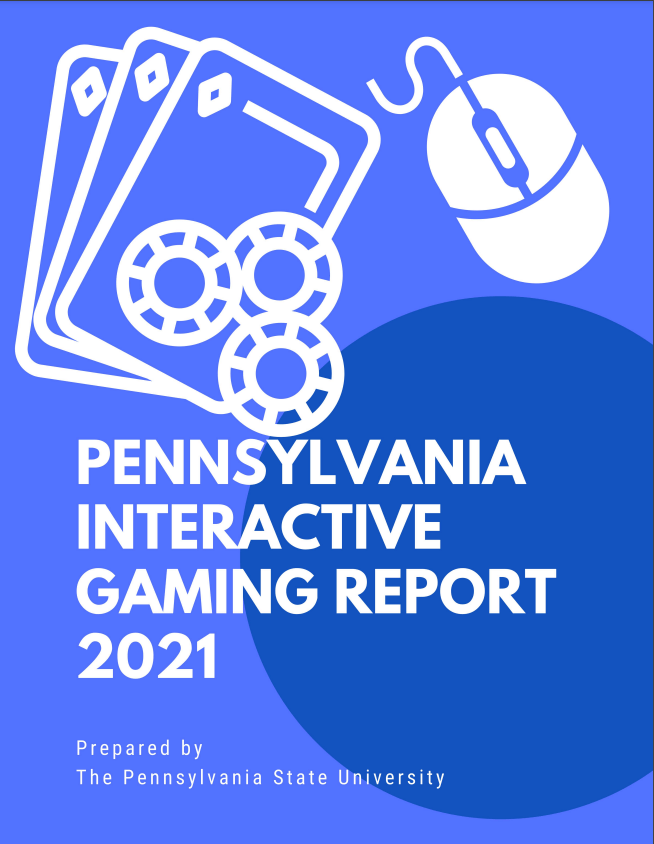2021 Pennsylvania Interactive Gaming Report
Interactive Gaming, also referred to as online gambling or iGaming, became legal in Pennsylvania in 2017 through the PA Act 42 of 2017. Licenses were first granted in Pennsylvania to conduct interactive gaming in 2018. The addition of 7 new interactive gaming sites in Fiscal Year 2020/2021 brought the Pennsylvania total to 19. These 19 sites were operated by 10 different certificate holders. In terms of economic impact, interactive gaming generated over $372 million in direct gaming taxes (Pennsylvania Gaming Control Board, 2021). Furthermore, online sports betting contributed over $260 million dollars in tax revenues in Fiscal Year 2020/2021 (Pennsylvania Gaming Control Board, 2021). The magnitude of this number is best understood by noting that traditional retail or ‘brick and mortar’ sports books only generated slightly more than $48 million in tax revenues. The latest revenue reports generated by the PA Gaming Control Board indicated continued increased revenue of interactive gaming across the Commonwealth.
Revenue generation associated with interactive gaming is one possible indicator of activity trends. However, it remains unclear if this is due to an increase in individual spending or an increase in individual participation in interactive gaming, or potentially both. To begin to answer this question, this report provides the results from analyses on data collected from a representative sample of Pennsylvanians from 2020-2021. The results provide insight into interactive gaming and those who are engaged in this practice in Pennsylvania and should not be used to make inferences about any other gambling behaviors.
According to the results of the survey, approximately 1 in 10 Pennsylvanians (11.1%) engaged in interactive gaming (95% CI = 0.5 + 0.028 [11.571, 11.628]; Margin of Sampling Error [MOSE] = 3%), while approximately 28%i of Pennsylvanians reported any gambling activity (which may include interactive gaming) in the past 12 months according to the Behavioral Risk Factor Surveillance System (BRFSS) (Pennsylvania Department of Health, 2021).


